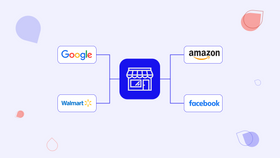7 Benefits of SEO for eCommerce Businesses
Are you struggling to attract customers to your online store? Discover how SEO can transform your eCommerce business.
Published November 20, 2024.

The struggle to attract customers can overwhelm eCommerce businesses, especially when traditional advertising methods fail. Many companies pour resources into paid ads, only to see minimal returns and fleeting traffic.
This predicament raises an essential question: how can businesses achieve lasting visibility and sustainable growth without breaking the bank? The answer lies in Search Engine Optimization (SEO), a strategic approach designed to enhance online presence and connect with potential customers more effectively.
This article will explore the key benefits of SEO for eCommerce businesses and discuss how effective SEO strategies can transform an online store's performance and profitability.
Let's dive in!
What is eCommerce SEO?
eCommerce SEO refers to optimizing online stores to enhance their visibility in search engine results pages (SERPs). This process involves various strategies designed to improve organic rankings, making it easier for potential customers to discover products.
By focusing on relevant keywords, optimizing product pages, and ensuring a user-friendly site structure, eCommerce businesses can attract more traffic without the ongoing costs associated with paid advertising.
The primary goal of eCommerce SEO is to drive qualified traffic to an online store. Unlike traditional SEO, which may prioritize informational content, eCommerce SEO specifically targets product listings and category pages. This specialization helps businesses increase their visibility and improve conversion rates by attracting users who are actively searching for the products they offer.
Key components of eCommerce SEO include:
- keyword research
- on-page optimization
- technical SEO
Keyword research helps identify the terms potential customers use when searching for products, while on-page optimization focuses on enhancing product descriptions, meta tags, and images to align with these keywords. Technical SEO ensures the website is structured correctly so that search engines can crawl and index its pages effectively.
7 benefits of eCommerce SEO
Matthew Silverman
1. Increased organic traffic
SEO optimizes product pages and blog content for search engines, enhancing visibility and discoverability. Targeting the right keywords allows eCommerce businesses to generate consistent, long-term traffic without continuous advertising costs. High search rankings also build user trust, making visitors more likely to engage with the site. Organic traffic is invaluable; it often converts better than paid traffic because users trust the search results.
2. Improved user experience (UX)
SEO practices, such as mobile optimization and faster page speeds, significantly enhance user experience. A well-optimized site reduces bounce rates and increases engagement, as users are more likely to stay on a site that loads quickly and is easy to navigate.
Google prioritizes user-friendly websites in its rankings, reinforcing the importance of UX in SEO. Improving user experience through SEO benefits rankings and fosters customer loyalty.
3. Enhanced brand visibility and authority
Ranking for relevant keywords helps build brand awareness and establishes authority within a niche. High-quality content is essential for demonstrating expertise and attracting potential customers. Local SEO strategies further enhance visibility for businesses targeting specific regions. Over time, consistent SEO efforts can solidify a brand's authority in its market.
4. Higher conversion rates
Optimized content, improved site speed, and enhanced UX collectively improve conversion rates. Intent-driven SEO focuses on attracting users who are ready to make a purchase, which increases the likelihood of sales. eCommerce businesses that implemented targeted SEO strategies significantly improved their conversion rates.
5. Cost-effectiveness compared to paid ads
Investing in SEO offers long-term value compared to the short-term results of pay-per-click (PPC) advertising. While PPC can drive immediate traffic, the cumulative benefits of SEO lead to consistent organic traffic over time, ultimately reducing customer acquisition costs. eCommerce businesses can save significantly on long-term marketing expenses by prioritizing SEO over paid ads.
6. Better insights with SEO analytics
SEO tools provide valuable data on customer behavior, keyword performance, and site improvements. This data enables eCommerce businesses to refine their marketing strategies effectively and make informed decisions based on real-time insights.
7. Competitive edge in your niche
SEO allows smaller eCommerce businesses to compete with larger brands by targeting niche keywords and exploiting keyword gaps that competitors may overlook. This approach attracts targeted traffic and helps establish a presence in specific market segments.
eCommerce SEO best practices
Optimize product descriptions
Crafting unique and compelling product descriptions is essential for eCommerce SEO. Each description should include relevant keywords that potential customers will likely search for, enhancing visibility in search engine results. Focusing on the benefits and features of the products can also improve user engagement and conversion rates.
Leverage schema markup
Implementing schema markup helps search engines understand your content better, which can lead to enhanced visibility through rich snippets.
Example: using product schema can display vital information such as price, availability, and customer reviews directly in search results. This improves click-through rates and provides users with immediate information about your products.
Improve internal linking
A well-structured internal linking strategy enhances site navigation and helps distribute link equity throughout your website. By linking related products and blog posts to each other, you create a more cohesive user experience that encourages visitors to explore more pages.
Example: including links to related items on product pages or linking blog posts to relevant product categories can significantly boost SEO performance.
Regularly update content
Keeping content fresh is vital for high search rankings. Regularly updating product descriptions, blog posts, and category pages signals to search engines that your site is active and relevant. This practice helps improve SEO and ensures that customers receive the most current information about your offerings.
Utilize high-quality images
Using high-quality images with descriptive alt text is vital for both user experience and SEO. Alt text helps search engines understand images' content while improving accessibility for users with visual impairments. Optimized images can enhance page loading speeds, improving overall user experience.
Implement user reviews
Encouraging customer reviews can significantly impact your SEO efforts. User-generated content adds fresh content to your product pages and builds trust with potential customers. Positive reviews can enhance click-through rates and conversions, providing social proof of your products' quality.
Focus on mobile optimization
With increasing consumers shopping via mobile devices, ensuring your eCommerce site is mobile-friendly is essential. A responsive design that adapts to different screen sizes improves user experience and is favored by search engines in ranking algorithms.
By following these best practices, eCommerce businesses can enhance their SEO strategies, resulting in improved visibility, user engagement, and, ultimately, higher sales.
Unlock your eCommerce potential with Mayple today!
Mayple is your gateway to connecting with top-tier eCommerce agencies specializing in SEO. By partnering with the right experts, you can implement tailored strategies that enhance your online visibility and drive sustainable growth.
Don’t let your business get lost in the digital noise—explore how Mayple can help elevate your eCommerce success and effectively reach your target audience. Start your journey towards increased traffic and conversions now!






![How to Find the Top Keywords for Your eCommerce Brand [+5 Power Tips]](https://entail.mayple.com/en-assets/mayple/fit-in/280x280/61276a8df9b391474705eee8_HowtoFindtheTopeCommerceKeywords2_b9b3c9df3d897f16fa6acf938d449c64_2000-1699777215446.png)
![[Interview] Neal Schaffer on How to Build Relationships with eCommerce Influencers](https://entail.mayple.com/en-assets/mayple/fit-in/280x280/6194d6b0ff9b9cf0daf35978_1201117809151689Mayple1920x1080MAR1_02_8817e554b079ec2ed8ac2e7bb0743c8c_2000-1699776049691.png)

